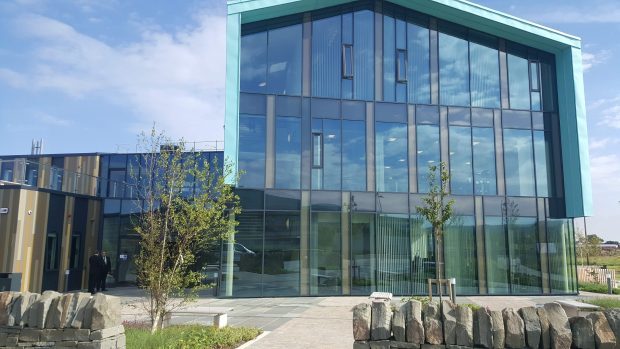Staff at the north’s business agency spent more than £800,000 in just two years on almost 5,000 trips across the country and the world.
Highlands and Islands Enterprise (HIE) officials racked up the bill on hotels, flights, trains, taxis and meals in 2014/15 and 2015/16.
Bosses at the Scottish Government body defended the spending last night – saying it had helped create hundreds of jobs and attract £111million of foreign investment in the last year alone.
But critics claimed the money would be better spent on projects in local communities in the Highlands and islands, Argyll and Moray.
Figures released to the Press and Journal show the agency spent £596,212 on about 2,000 flights in the two years, and another £187,142 on about 2,800 rail journeys.
The bill for international travel was £109,675 in the period – with more than £20,000 spent on hotels, and in excess of £67,000 going on trips outside of Europe.
Destinations included New Zealand, Tokyo, Nagasaki, Hong Kong, Boston, Seattle, Houston, Austin, El Paso, Montreal, Halifax, Paris, Nantes, Vienna, Munich, Berlin, Stockholm, Milan, Turin and Budapest.
Expensive trips included a bill of more than £10,000 to send two bosses to Hong Kong in January 2015, another which cost more than £6,500 for two officials going to Houston and El Paso, and a £3,288 trip to Tokyo.
There was £2,300 spent for two staff to spend five nights in a Boston hotel in August last year, a £2,418 hotel bill for a trip to Cork, and £5,124 on accommodation this year at the Massachusetts Institute of Technology, where the agency takes budding entrepreneurs for training.
Douglas Ross, Conservative MSP for the Highlands and islands, suggested last night that the agency should focus its resources better.
“At a time when economic development is important to the Highlands, we should be focussing our resources locally to ensure we get the best deal for the communities HIE is trying to serve,” he said.
“I don’t believe expensive trips around the world are the best way to use government money.
“With all the modern technology we have, it should be possible to get some of the required information without travelling around the world.”
However, Inverness Chamber of Commerce chief executive Stewart Nicol said that HIE staff had to travel to secure investment.
“They have got a remit as a driver for both the Highland business community and also the whole community engagement role they’ve got,” he said.
“Obviously budgets have got to be managed and they will be, but this is what we need from our enterprise agency – that they are getting out and meeting key decision-makers and making investment happen.
“We can’t have it both ways. You can’t tell them to get out there and do a good job and then tie their hands behind their back.”
Carroll Buxton, HIE director of regional development, highlighted the body’s workforce of more than 300, and remit covering 15,000sq miles, as well as Scotland-wide responsibilities on community development, broadband and wave energy.
“We make great use of technology such as video conferencing to reduce the need for travel,” she said.
“However, the location of the Highlands and islands, the geography within the region, and its growing international connections mean that travel is necessary for many different reasons.
“We travel within the region and between the region and the central belt and London.
“This might be to attend industry events or meetings with public and private sector partners, including the Scottish and UK Governments, or to work with clients in the region itself.”
She added: “As the development agency for half of Scotland, we also need to engage with some of the world’s fastest growing markets and identify trade opportunities for businesses based in our region.
“We meet with companies who have existing connections in the Highlands and islands or have expressed interest in trading and investment opportunities here.
“The foreign direct investments HIE helped attract last year are expected to secure investment of £111million for the region and create hundreds of jobs in places including Inverness, Machrihanish, Lewis and Caithness.”
